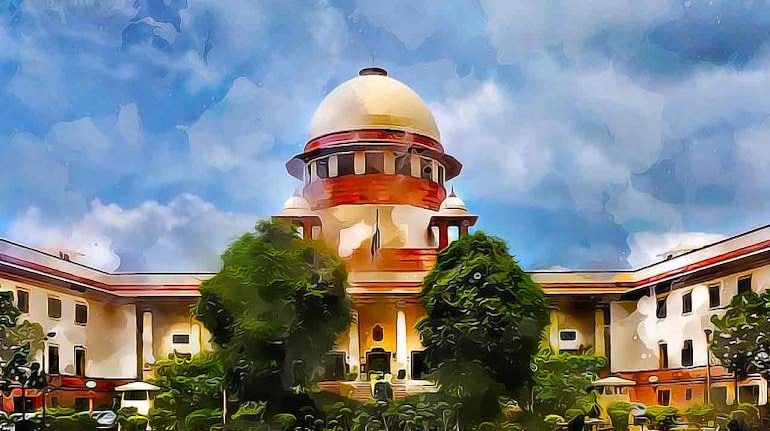



On March 4, 2024, a seven-judge bench of the Supreme Court (SC) unanimously ruled that lawmakers can be prosecuted if they are found to have taken a bribe to make a speech or vote a certain way in parliament or the assembly.
The court held that bribery erodes probity in public life and an immunity for bribery cannot be sustained in law. Furthermore, the court noted that bribery is not covered under the immunity granted by the constitution for words said and actions done in the house.
This judgment overruled a five-judge bench decree of the apex court from 1998, which held that lawmakers enjoy immunity even if they take bribes to make speeches or vote in the house.
The latest SC judgment will have a bearing on expelled Trinamool Congress MP Mahua Moitra’s cash-for-queries case, and makes way for her prosecution by law enforcement agencies. However, the agencies are yet to initiate criminal proceedings against Moitra for allegedly taking a bribe and sharing her parliament login details.
The judgment will also make it difficult for lawmakers to take a bribe and cross-vote in Rajya Sabha (RS) and legislative council elections. Thus, if an MLA takes a bribe to cross-vote in RS elections, he might be subject to criminal prosecution if, prima facie, he is shown to have taken a bribe .
Article 105 of the constitution allows freedom of speech in parliament. To uphold the same, MPs may not be prosecuted in a court of law for what they said or how they voted in the house.
According to article 105 (2), “No member of parliament shall be liable to any proceedings in any court in respect of anything said or any vote given by him in parliament or any committee thereof.”
Members of a state legislative assembly also enjoy similar immunity from prosecution for what they said or how they voted in the assembly, per article 194 of the constitution.
Moneycontrol explains five key features of the SC judgment.
Bribery is an offence irrespective of whether the purpose is served or not
The court has held that bribery is an offence irrespective of whether the purpose for which the was taken has been achieved or not. During the course of the hearing, the court asked whether bribery would still be an offence if a lawmaker took the money but did not speak or vote. The lawyers gave the court various interpretations on this aspect of law, however, it concluded that bribery is an offence regardless of whether the purpose is served.
“Such an interpretation results in a situation where a legislator is rewarded with immunity when they accept a bribe and follow through by voting in the agreed direction. On the other hand, a legislator who agrees to accept a bribe, but may eventually decide to vote independently, will be prosecuted. This belies not only the constitution, but also the purpose of conferring parliamentary privilege on members of the legislature,” said the SC.
Bribery destroys constitutional intent
The court ruled that privileges were granted to lawmakers to sustain an environment in which debate and deliberation can take place. However, giving immunity to bribery for voting or speaking in parliament destroys this intent. The court said: “This purpose (constitutional provisions) is destroyed when a member is induced to vote or speak in a certain manner because of an act of bribery.”
Privilege subject to court’s intervention
The court noted that when a lawmaker claims privilege for an act done in the house, the courts can review it. The two-factor test will determine whether something is a privilege or not.
When can privilege be invoked?
In its judgment, the Supreme Court laid down a two-factor test a lawmaker must satisfy in order to claim immunity on acts done in parliament. The court has held that:
1. Members of the house cannot claim privileges which are not related to the functioning of parliament or the legislature.
2. Privilege can be claimed for actions that pertain to their role as lawmaker, and not any other activity.
That is, privilege can only be claimed for something that pertains to the parliament or assembly, and it must have something to do with the duties of a lawmaker to the house.
Any action by the lawmaker that does not satisfy these two tests will not be eligible for parliamentary privilege.
Rajya Sabha elections covered by the judgment
In the recently concluded RS elections in Himachal Pradesh, the Congress alleged that seven of its MLAs had cross-voted. Per this judgment, if an MLA takes a bribe and cross-votes, they can be subject to criminal prosecution.
Dismissing the arguments that RS elections are not necessarily held when the house is in session, and hence they must be outside the purview of the judgment, the court said: “It cannot be restricted to only law-making on the floor of the house, but extends to other powers and responsibilities of elected members, which take place in the legislature or parliament, even when the house is not sitting.”
The court has held that the Rajya Sabha, or the Council of States, performs a critical function in the working of India’s democracy, and the role played by it is part of the basic structure of the constitution.
Discover the latest Business News, Sensex, and Nifty updates. Obtain Personal Finance insights, tax queries, and expert opinions on Moneycontrol or download the Moneycontrol App to stay updated!
Find the best of Al News in one place, specially curated for you every weekend.
Stay on top of the latest tech trends and biggest startup news.